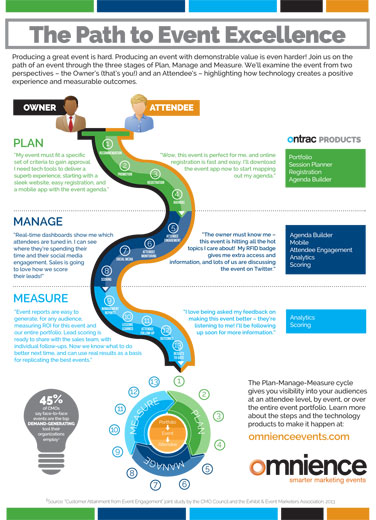Recommended video: “Why Measuring Meeting ROI is a Must”
Find a break in your schedule to watch a short video by Theresa (Terri) Breining of the Breining Group LLC. It will be a well-spent four minutes.
Measuring meeting success, she notes, begins with setting clear objectives. The most important question for any meeting is: What do we want people to do as a result of attending the meeting? That action must be “clearly articulated, and almost never is.”
She makes the case for measuring the success of a meeting based on the value it generates. She advises: Decide what you want attendees to do after the meeting; then, figure out how to measure whether you achieved that.
ROI is a way of making the meeting owner more accountable, Breining says, beyond the “old-school” measures of budget, attendance, and attendee satisfaction. ROI focuses not on what the meeting costs, but on “whether it should have taken place at all, based on the value it brings back to the organization sponsoring it.”
“Most meetings don’t have to be measured to the degree of financial ROI,” Breining says. These lower-level events can be measured on what people learned, what they plan to do, or other business impacts of the meeting.
I think most marketing events, however, are in the top tier of events that Breining describes as “the most expensive, visible, and strategically important meetings – these need to be measured to the level of financial ROI.” Last month, Omnience CEO Casey Cote emphasized that point in his blog post, “Managing ROI for Marketing Events.”
“One of the things that puts people off with ROI,” Breining concludes, “is the idea that ‘I can’t do financial ROI, so I’m not going to bother.’ It’s important to bother.”
Want to learn more about ROI measurement from this industry expert? Read her interview with the Chicago Chapter of Meeting Professionals International.




